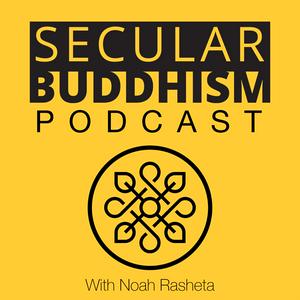In this episode, I celebrate the 10-year anniversary of the Secular Buddhism podcast by announcing a new AI-powered website, EightfoldPath.com, which serves as a modern application of the Buddhist concept of skillful means. Skillful means, or upaya, is the idea that teachings should adapt to meet individuals where they are, using whatever tools or methods are most effective for reducing suffering and cultivating wisdom. Throughout history, technologies like writing, the printing press, and the internet have served as skillful means for transmitting Buddhist teachings, and now artificial intelligence is the latest iteration. The new website features "Noah AI," a tool trained on all my past content, acting as a conversational thinking partner to make these ancient insights more accessible and interactive for modern learners, emphasizing that the technology is simply a vehicle for the teachings, not the teachings themselves. Learn more at eightfoldpath.com
The podcast celebrates its 10-year anniversary, marking a decade of making Buddhist teachings accessible through modern technology.
The concept of "skillful means" (upaya) is central, emphasizing the adaptation of teaching methods to individual needs and situations, a principle applied throughout Buddhist history with the advent of writing, printing, and digital media.
A new AI-powered website, EightfoldPath.com, has been launched, featuring "Noah AI," a tool trained on all of Noah Rasheta's content to serve as a conversational thinking partner for exploring Buddhist teachings.
The website offers free access to transcribed podcast episodes, courses, and the AI tool, with additional benefits for supporters, aiming to make wisdom and compassion more accessible.
The shift to EightfoldPath.com signifies a broader scope beyond "secular Buddhism," focusing on the universal "Eightfold Path" as the core of the teachings, regardless of labels.
Explore more at eightfoldpath.com: full transcripts, guided meditations, courses, and Noah AI, an AI you can chat with about any episode or teaching.
Hosted on Acast. See acast.com/privacy for more information.


